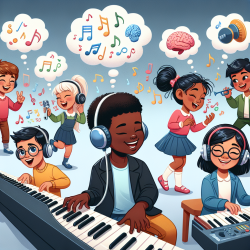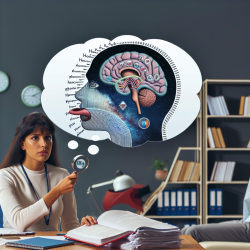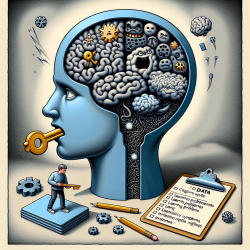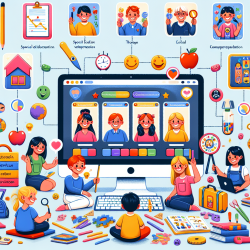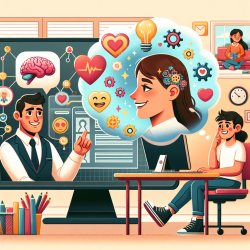Recent research has shed light on the benefits of music and foreign language training for auditory function in children. The study titled "Improved Auditory Function Caused by Music Versus Foreign Language Training at School Age: Is There a Difference?" compared the effects of these two types of training on auditory neurocognition in Chinese children aged 8–11 years. The findings offer valuable insights for practitioners looking to enhance their therapeutic strategies.
In this study, children participated in either a music or a foreign language training program over the course of one year. Auditory event-related potentials (ERPs) were recorded before and after the training to assess early auditory predictive brain processes. The results revealed that the foreign language program facilitated early auditory predictive brain processes more significantly than the music program, particularly in pitch encoding when the experimental paradigm was musically relevant. Conversely, the music program facilitated pitch encoding when the paradigm focused on basic sound features.
These findings suggest that both music and foreign language training can modulate auditory perceptual and neural functions, albeit in different ways. For practitioners, this implies that incorporating elements of foreign language training into therapy sessions could potentially enhance auditory processing skills in children, especially those who are native speakers of tonal languages like Mandarin Chinese. Here are some practical steps to implement these findings:
- Incorporate Foreign Language Activities: Introduce foreign language elements, such as English phonemes and vocabulary, into therapy sessions. This can be done through interactive games, songs, and reading activities that focus on pitch and phoneme awareness.
- Utilize Music Training: Continue to use music training to improve basic auditory processing skills. Activities like singing, rhythm exercises, and playing musical instruments can be particularly effective.
- Monitor Progress: Regularly assess auditory processing skills using tools like ERPs to measure improvements and adjust training programs accordingly.
- Personalize Training: Tailor the training programs to each child's specific needs and preferences. This can help maintain their interest and motivation, leading to better outcomes.
By integrating these strategies, practitioners can create a more comprehensive and effective approach to improving auditory function in children. This research highlights the importance of considering both music and language training in therapeutic interventions, providing a data-driven foundation for enhancing children's auditory and neurocognitive development.
To read the original research paper, please follow this link: Improved Auditory Function Caused by Music Versus Foreign Language Training at School Age: Is There a Difference?
